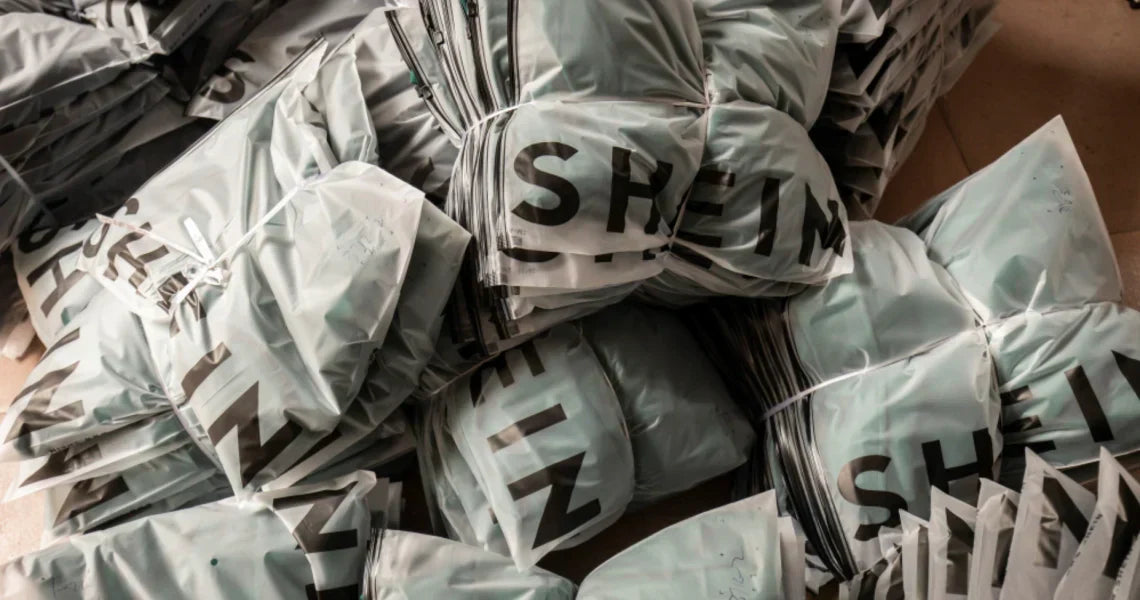Are Antibacterial Cleaning Products Harming Your Health and Immunity?
Antibacterial products have become a staple in modern homes, especially after global events that sparked a hygiene frenzy. For years, brands have told us that to stay safe, we must kill 99.999% of germs using potent antibacterial sprays, wipes, and disinfectants. But is this really necessary? And more importantly - is it even safe?
Scientific research increasingly shows that over-sanitising our homes and bodies may be contributing to chronic illness, antibiotic resistance, and damage to our natural immunity. In this blog, we explore whether antibacterial cleaners are truly more effective than ordinary soap or non-toxic products, and why going back to basics may actually be the safer, smarter move.
What’s So Bad About Bacteria?
Let’s be honest. Bacteria have a terrible reputation. The mere mention of the word evokes fear and urgency to disinfect. But the truth is more nuanced. Our bodies host over 39 trillion microorganisms, including friendly bacteria that live on our skin, in our gut, and in our homes. These microbes are not just harmless - they’re essential.
Good bacteria:
-
Help digest food
-
Produce essential vitamins
-
Form a defensive barrier against harmful microbes
Research published in Nature Reviews Microbiology reveals that excessive hygiene practices and use of disinfectants can disrupt the microbiome, leading to autoimmune diseases, allergies, and even mood disorders due to the gut-brain connection (source).
Other studies show that children who grow up in overly sanitised environments may have increased risks of asthma, eczema, and food allergies, due to insufficient exposure to natural microbes during key immune development phases. Maintaining microbial diversity in the home supports immune training, reducing the risk of chronic inflammation later in life.
Do Antibacterial Cleaners Really Work Better?
Contrary to popular belief, pesticide and herbicide based harsh antibacterial cleaners are not always more effective than soap and water. According to the CDC, plain soap removes germs physically through friction, lifting dirt and bacteria from skin and surfaces and rinsing them away.
Meanwhile, a University of Oregon study found that after using antibacterial cleaners, bacteria start to recolonise the surface within 20 minutes often with greater resistance. That means all that scrubbing and spraying might actually be pointless, or worse, counterproductive.
Soap also has the benefit of being more selective. It doesn’t obliterate beneficial microbes that support natural immunity. Instead, it helps maintain balance, which is especially important in households with children, elderly family members, or immunocompromised individuals.
What Are the Health Risks of Antibacterial Cleaners?
Many antibacterial products contain harsh chemicals originally developed for hospitals, not everyday households. These include:
-
Triclosan (now banned in the US for hand soaps by the FDA in 2016)
-
Quaternary ammonium compounds (Quats)
-
Chlorine bleach
-
Synthetic fragrances linked to endocrine disruption
The real risks of antibacterial cleaning products:
-
Antibiotic resistance: Overuse can lead to bacteria mutating and resisting treatment
-
Skin irritation and asthma: Harsh ingredients can cause respiratory distress
-
Hormone disruption: Chemicals like phthalates mimic hormones and interfere with fertility
-
Allergic reactions: Especially in children and pets
A landmark study by the University of California found that triclosan exposure could impair muscle function and disrupt hormone regulation in animals.
In fact, the U.S. Food and Drug Administration (FDA) banned the use of certain antibacterial agents, including triclosan, in consumer hand soaps back in 2016, citing concerns about safety and effectiveness. These chemicals were found to offer no additional health benefit over regular soap and water, and long-term use was linked to reduced natural resistance and hormone disruption.
Unfortunately, no such ban currently exists in the UK or EU, meaning many everyday products still contain these unnecessary and potentially harmful substances.
Quats, another common ingredient, have been linked to reproductive toxicity and skin sensitisation. Studies published in Environmental Health Perspectives show these chemicals can accumulate in indoor air and on surfaces, contributing to poor air quality over time.
Do Antibacterial products Kill the Good Bacteria Too?
Yes. The "kill 99.999%" message isn’t selective. It wipes out beneficial microbes that help protect you from disease-causing bacteria. This over-sanitisation reduces microbial diversity—something scientists now believe is key to strong immune systems.
As with antibiotics, there’s such a thing as too much cleaning. We don’t take antibiotics “just in case,” so why do we routinely clean our homes as if we're operating on surgical patients?
Microbiologists warn that reducing exposure to good bacteria can also affect mental health due to the gut-brain axis. Disruption to gut microbiota has been linked to depression, anxiety, and even neurodegenerative diseases.
What’s the Safer Alternative to Antibacterial Products?
At Spruce, we believe in cleaning smarter, not harder. Our non-toxic cleaning range uses plant-based surfactants that:
-
Break down the lipid membranes of harmful bacteria
-
Physically lift dirt, grease, and germs from surfaces
-
Leave no harmful residue behind
These ingredients are:
-
Biodegradable
-
Free from bleach, ammonia, and synthetic preservatives
-
Safe for kids, pets, and people with sensitivities
Natural cleaning products don’t mean less effective. In fact, removing germs rather than killing them may be the best approach to long-term hygiene and immune protection.
Are Spruce Natural Cleaners Effective?
Yes. This is how Spruce natural cleaning products work to get rid of everyday household germs:
-
Disrupt the fatty outer layer of bacteria and viruses
-
Rinse pathogens down the drain
-
Maintain skin and surface microbiomes better than alcohol gels or antibacterial sprays
And for surfaces, mechanical removal with a quality surfactant-based cleaner, like Spruce's multi-surface spray and floor cleaner, is typically all that’s needed.
Why “Kills 99.999%” Is a Marketing Gimmick
The phrase “kills 99.9999% of germs” is unregulated, meaning brands can slap it on labels without independent verification in real-world settings.
The reality:
-
These numbers are based on lab conditions with specific bacteria strains
-
They don’t account for how quickly bacteria recolonise
-
They encourage fear-based buying and overuse of chemicals in homes
This marketing language feeds into consumer anxiety, rather than supporting health literacy. It also contributes to the misconception that all bacteria are inherently dangerous, leading to harmful overuse of disinfectants.
Are Antibacterial Products Damaging the Environment?
Yes. Beyond our homes, antibacterial chemicals pose a threat to aquatic life and soil ecosystems. When these chemicals are washed down the drain, they:
-
Accumulate in waterways
-
Harm fish and plant life
-
Disrupt ecosystems
Studies have found residues of triclosan and quats in marine sediments and freshwater rivers, where they interfere with reproductive systems in aquatic organisms. These substances persist and bioaccumulate, damaging biodiversity.
Most antibacterial products are also packaged in single-use plastic, increasing the burden on landfills and oceans.
Which Chemicals Should You Avoid in Your Cleaning Products?
Here’s a quick checklist of harmful Ingredients to Avoid:
-
Triclosan & Triclocarban
-
Quaternary Ammonium Compounds (Quats)
-
Chlorine Bleach
-
Synthetic Fragrances (linked to infertility)
-
Phthalates
-
SLS/SLES
-
Optical Brighteners
-
Formaldehyde releasers
-
Petroleum derivatives
-
Palm oil
-
Phosphates
What Are Some Safe, Non-Toxic Cleaning Options?
At Spruce, we’ve created safe, refillable products that clean effectively without harming your health or the planet. Try:
These products are infused with natural organic essential oils and contain no toxic residues, safe enough for babies, pets, and sensitive skin. Our laundry detergent sheets replace harsh gut-disrupting laundry detergents that kill your body’s natural immunity, and are fragrance-free for the extra-sensitive.
Frequently Asked Questions (FAQ)
Are antibacterial cleaners safe for babies and children?
Most conventional antibacterial products are not suitable for babies due to harsh ingredients like bleach and synthetic fragrances. Non-toxic alternatives are much safer and effective for daily use around children.
What’s the difference between antibacterial and disinfectant cleaners?
Antibacterial products target bacteria specifically, while disinfectants kill a broader range of pathogens including viruses and fungi. However, neither are needed for routine home cleaning unless managing infectious outbreaks.
Can I make my own natural cleaning solutions?
Yes. You can use combinations of vinegar, baking soda, and essential oils (like tea tree or lemon) for many household tasks. Just avoid mixing vinegar with bleach or hydrogen peroxide, which can be hazardous.
Need More Convincing?
Read more about how synthetic fragrances, cleaning chemicals, and plastics affect your health in our blog:
👉
Cleaning Products and Infertility – The Not So Hidden Truth
Or discover how our founder, Mahira, started Spruce to clean up the industry and create safer options for families:
👉
Read Mahira’s Story
Final Thoughts: Do You Really Need Antibacterial Cleaners?
Unless you’re disinfecting a hospital operating room, the answer is no.
For everyday home cleaning, non-toxic products with natural surfactants are not only safer but just as effective. Antibacterial products may give the illusion of safety, but they often harm your health, damage the environment, and encourage antibiotic resistance.
You don’t need to kill everything to have a clean home. You just need to clean wisely.









Leave a comment (all fields required)